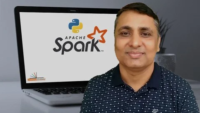
Table of contents
- Overview of Econometrics and Statistics for Business in R & Python Course on Udemy
- What to Expect from the Econometrics and Statistics for Business in R & Python Course
- What You Will Learn in Econometrics and Statistics for Business in R & Python
- Why Choose This Econometrics and Statistics for Business in R & Python Course on Udemy
- Recommended Courses with Python Focus
- Our Review of Econometrics and Statistics for Business in R & Python Course
- Rating the Econometrics and Statistics for Business in R & Python Course
Overview of Econometrics and Statistics for Business in R & Python Course on Udemy
Master the art of solving real-world business problems with econometric and statistical modeling using Python and R in this comprehensive Udemy course. Designed to demystify econometrics, this course focuses on actionable techniques, intuitive explanations, and hands-on coding to address finance and marketing challenges. With a total video duration of approximately 11 hours and 25 downloadable resources, including datasets and code files, learners gain practical tools to excel in data-driven decision-making. The course is led by Diogo Alves de Resende, seasoned data analytics professional with experience at a major e-commerce company and the United Nations. Enroll today with udemy coupon JUNE25-SOCIALS (valid until JUNE 31, 2025—check the offer box below for the discount link!)
What to Expect from the Econometrics and Statistics for Business in R & Python Course
This course offers an engaging learning experience spanning roughly 10 hours of video content, blending business case studies, intuition tutorials, and hands-on coding practice. Diogo’s teaching style is approachable, avoiding complex theorems and focusing on practical applications in business contexts like HR, marketing, and finance. It’s tailored for students, analysts, and professionals in economics, data science, or business who want to master causal inference and statistical modeling. The course is hosted on Udemy’s flexible platform, allowing you to learn at your own pace on desktop or mobile, with lifetime access to materials and updates.
Key features include real-world case studies from Diogo’s professional experience, coding exercises in R and Python, and a focus on peer-reviewed econometric techniques. Expect to dive into practical tutorials where you’ll code solutions to business problems, making the learning process both interactive and relevant.
What You Will Learn in Econometrics and Statistics for Business in R & Python
- Understand how to apply econometric techniques in business settings like finance and marketing.
- Use Google’s Causal Impact to measure the effect of interventions on time series data.
- Code econometric models from scratch in both R and Python.
- Apply propensity score matching to control for confounding variables in outcome comparisons.
- Master techniques like Difference-in-Differences, Granger Causality, and CHAID for causal inference.
- Develop an intuitive understanding of statistical concepts through real-life business case studies.
Why Choose This Econometrics and Statistics for Business in R & Python Course on Udemy
This course stands out due to Diogo’s extensive expertise in data analytics and his ability to make econometrics accessible through practical, business-focused examples. Updated in May 2025, the Python tutorials ensure you’re learning with the latest tools. The course’s 11 hours of content and 25 downloadable resources provide exceptional value, equipping you with a toolkit for real-world applications in any business department. Whether you’re a student aiming to ace econometrics or a professional seeking data-driven insights, this course delivers actionable skills. Use udemy coupon JUNE25-SOCIALS to get at a discount (see offer box)!
Recommended Courses with Python Focus
Looking to expand your skills? Check out these related courses:
Master Time Series Analysis and Forecasting with Python 2025 BEST SELLER
PySpark – Apache Spark Programming in Python for beginners BEST SELLER
- Introduction to Econometrics: Theory and Practice – A beginner-friendly course covering regression analysis and hypothesis testing.
- Hands-on Econometrics for Beginners and Advanced Users – Focuses on practical applications using Stata and EViews.
- Econometrics: Solved Questions and Mathematical Proofs – Ideal for university students preparing for exams with 60+ solved questions.
Our Review of Econometrics and Statistics for Business in R & Python Course
From an admin perspective, this course is a gem for anyone looking to bridge the gap between econometrics theory and practical business applications. Diogo’s structured approach—dividing lessons into use cases, intuition tutorials, and coding practice—makes complex concepts digestible. The course’s emphasis on real-world problems, like forecasting sales trends or optimizing marketing campaigns, ensures immediate applicability. The quality of instruction is top-notch, with Diogo drawing on his e-commerce and UN experience to provide relevant examples. The 25 downloadable resources, including datasets, enhance the hands-on learning experience.
Pros:
- Practical focus with real-world business case studies.
- Clear, intuitive explanations that avoid overwhelming jargon.
- Updated Python tutorials (November 2024) ensure relevance.
Cons:
- May feel fast-paced for absolute beginners with no coding experience.
- Limited focus on advanced econometric proofs, which some academic learners might prefer.
With udemy coupon JUNE25-SOCIALS, it’s a steal!
Rating the Econometrics and Statistics for Business in R & Python Course
Overall Rating: 9.5/10
- Content: 9.5/10 – Comprehensive coverage of causal inference techniques with practical business applications.
- Delivery: 9/10 – Diogo’s engaging style and clear explanations shine, though pacing could be slower for novices.
- Value: 9/10 – Affordable with udemy coupon JUNE25-SOCIALS.
Don’t miss this opportunity to master econometrics for business—enroll now and transform your data analysis skills










